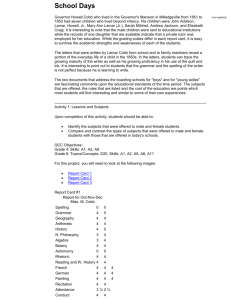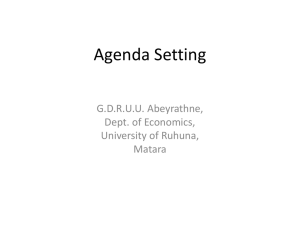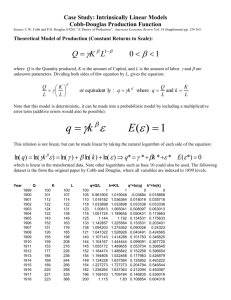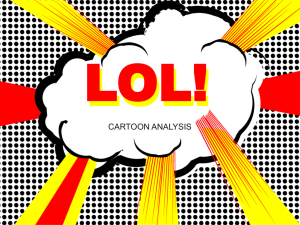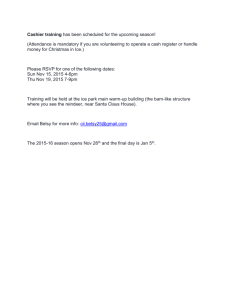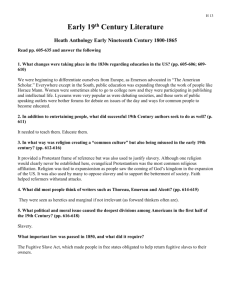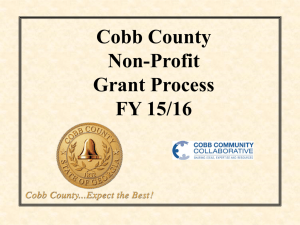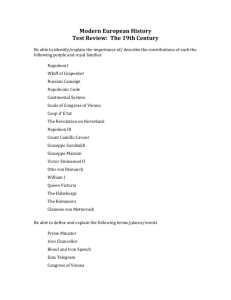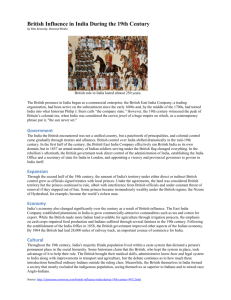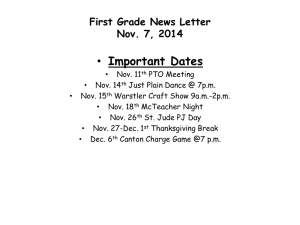Lesson 4, Sending for the Doctor
advertisement
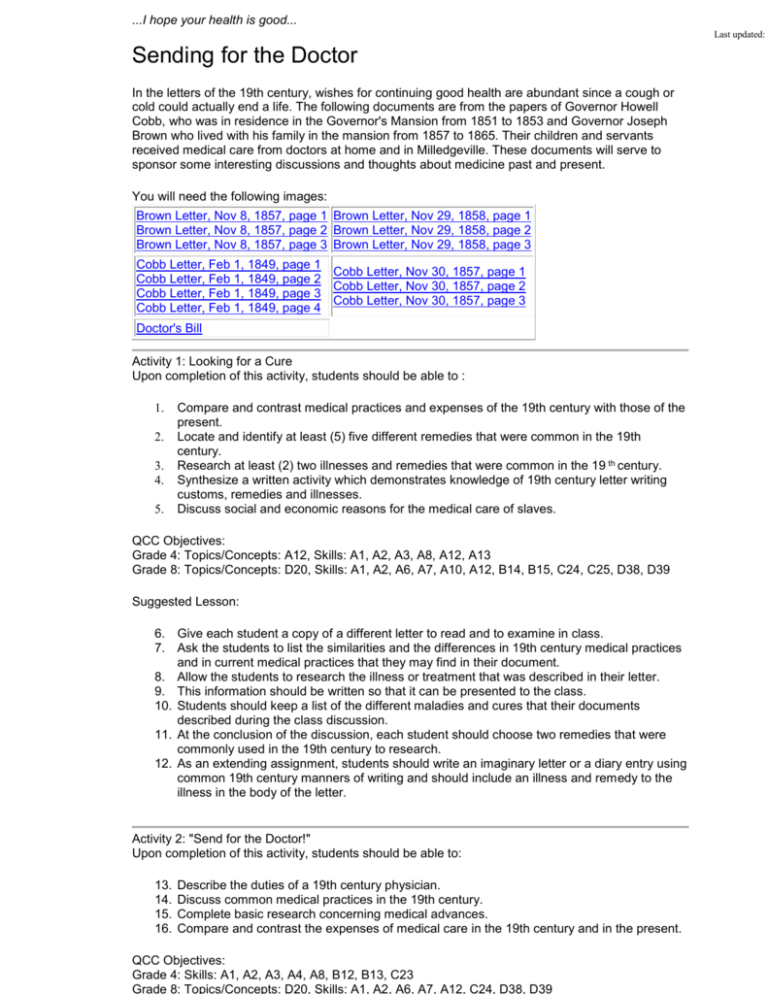
...I hope your health is good... Last updated: Sending for the Doctor In the letters of the 19th century, wishes for continuing good health are abundant since a cough or cold could actually end a life. The following documents are from the papers of Governor Howell Cobb, who was in residence in the Governor's Mansion from 1851 to 1853 and Governor Joseph Brown who lived with his family in the mansion from 1857 to 1865. Their children and servants received medical care from doctors at home and in Milledgeville. These documents will serve to sponsor some interesting discussions and thoughts about medicine past and present. You will need the following images: Brown Letter, Nov 8, 1857, page 1 Brown Letter, Nov 29, 1858, page 1 Brown Letter, Nov 8, 1857, page 2 Brown Letter, Nov 29, 1858, page 2 Brown Letter, Nov 8, 1857, page 3 Brown Letter, Nov 29, 1858, page 3 Cobb Letter, Feb 1, 1849, page 1 Cobb Letter, Nov 30, 1857, page 1 Cobb Letter, Feb 1, 1849, page 2 Cobb Letter, Nov 30, 1857, page 2 Cobb Letter, Feb 1, 1849, page 3 Cobb Letter, Nov 30, 1857, page 3 Cobb Letter, Feb 1, 1849, page 4 Doctor's Bill Activity 1: Looking for a Cure Upon completion of this activity, students should be able to : 1. 2. 3. 4. 5. Compare and contrast medical practices and expenses of the 19th century with those of the present. Locate and identify at least (5) five different remedies that were common in the 19th century. Research at least (2) two illnesses and remedies that were common in the 19 th century. Synthesize a written activity which demonstrates knowledge of 19th century letter writing customs, remedies and illnesses. Discuss social and economic reasons for the medical care of slaves. QCC Objectives: Grade 4: Topics/Concepts: A12, Skills: A1, A2, A3, A8, A12, A13 Grade 8: Topics/Concepts: D20, Skills: A1, A2, A6, A7, A10, A12, B14, B15, C24, C25, D38, D39 Suggested Lesson: 6. Give each student a copy of a different letter to read and to examine in class. 7. Ask the students to list the similarities and the differences in 19th century medical practices and in current medical practices that they may find in their document. 8. Allow the students to research the illness or treatment that was described in their letter. 9. This information should be written so that it can be presented to the class. 10. Students should keep a list of the different maladies and cures that their documents described during the class discussion. 11. At the conclusion of the discussion, each student should choose two remedies that were commonly used in the 19th century to research. 12. As an extending assignment, students should write an imaginary letter or a diary entry using common 19th century manners of writing and should include an illness and remedy to the illness in the body of the letter. Activity 2: "Send for the Doctor!" Upon completion of this activity, students should be able to: 13. 14. 15. 16. Describe the duties of a 19th century physician. Discuss common medical practices in the 19th century. Complete basic research concerning medical advances. Compare and contrast the expenses of medical care in the 19th century and in the present. QCC Objectives: Grade 4: Skills: A1, A2, A3, A4, A8, B12, B13, C23 (p.3) It has been raining for the last two days almost unceasingly. Today has reminded me very much, of those- "dark, dull, dreary, drizzly, dismal December days" that Professor Wilson in his fondness for alliteration; used to talk about in Blackwood Magazine. Prince, John Addison, myself, Dodge & Irving, Laird have spent the day around a rousing fire in the sitting rooms, some in rocking chairs & some on the rug & lounge. Some reading Plutarch & the Eclectic magazine & others snoozing. You don't know how much more pleasant Macon is than Milledgeville in raw, cold weather. I think Macon is the most pleasant winter climate in the world. In fact, for nearly nine months of the year it is as perfect an experience as the earth affords- So I think. After Christmas you had better all come over to the Bears Den & spend the balance of the winter. Affectionately Your Brother John B. Lamar P. S. Kiss Mary Ann for me. (Brother of Mrs. Mary Ann Cobb, Governor Howell Cobb's Wife) ------------Invoice-----------------1846 Mr. John B. Lamar Trustee To A. B. Moore Dr.$ cts Augt 17thTo Milage & visit to boy1.50 24thTo Medicine & visit to boy1.50 Septm 8thTo Medicine for boy ben .75 13To Milage & visit to boy Edmund1.50 "To Giving (*)Emt & Medicine left1.25 October 10thTo Milage & visit to woman1.50 "To Medicine Left .50 " 11th To Milage & visit to woman1.50 " " To Medicine left .50 " 12th To Milage visit & medicine2.00 " 14th To Milage at night & visit2.00 " " To Medicine .50 " 17 To Medicine sent .75 " 23 To Medicine sent .25 " 30th To Medicine .25 Nov. 12th To Milage & visit & Medicine 2.50 " 14th To Bitters .50 Bagly Place Augt 24th To Milage & visiting two cases & medicine 4.00 " 25th To Medicine sent1.25 $24.50 Received payment Jan. 2nd 1846 A B Moore (*) Emetic Click here for the Fifth Lesson, Traveling to Milledgeville with Maps Click to return to the Educational Resource Site Main Page If you have any questions or comments about the Mansion, please contact Jim Turner either by phone or email(478) 445-4545 / jim.turner@gcsu.edu or by mail The Old Governor's Mansion 120 South Clarke Street Milledgeville, GA 31061
